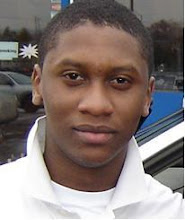As I mentioned in my previous post, knowledge is mostly passed on through oral communication in Senegal. The efficiency of the process is mostly based on two main skills that locals have been able to develop over the years. Oral cultures develop two very important skills in people.
Listening is a "perceptual and conceptual ability or capacity to 'read' reality through the ear." This capacity extends beyond reading the sounds of the natural environment and into the skills of social intelligence, the ability to perceive and interpret social situations. "In daily life, it means applying the spoken word deftly to participate and survive in the community. An oral culture is a communal culture in a very special sense: it does not survive without the spirit of the community." (Fuglesang, 1982)
Memory is "the folklore of puns, euphemisms, colloquialisms, proverbs, songs and stories is more than folksy fun." (FAO, 2007) These various and entertaining forms have special functions in an oral culture. Eloquence and subtlety are valued, a well-phrased statement is remembered. People listen for hours to a good storyteller, mostly patriarchs who have a lot stories to tell and knowledge to pass on. Older people use proverbs to enlighten or comment on the happenings of the day. "Proverbs are ingenious mnemonic devices for communicating the insights and experiences won in the past." (FAO,2007)
The interesting part is that this implicit process is part of daily activities. It is not a burden put on individuals, rather each person understands the benefits of actively participating and fulfilling his/her role. As such, tacit knowledge is passed on from generation to generation.
There are however, glaring shortcomings in the process. In my next post, I will discuss the downsides of sharing knowledge solely based on oral communication...
Reference: http://www.fao.org/docrep/S3607E/s3607e02.htm
Subscribe to:
Post Comments (Atom)

2 comments:
I would stress the aspect of storytelling in Oral communication. Storytelling is a powerful way to codify information and one of the most effective ways to convert tacit knowledge into explicit. I think it would be fascinating to study how Senegalese storytelling patters could be adapted for the business world in making us better story tellers (or communicators)
Very good point Stephan! It would be interesting to see how it translate into an organizational setting. I will definitely look into it.
A priori however, I do not believe it would be as effective as it is in Senegal. The process requires time, commitment and most importantly a receptive culture; all very complex and delicate issues to tackle and manage in a company setting
Post a Comment